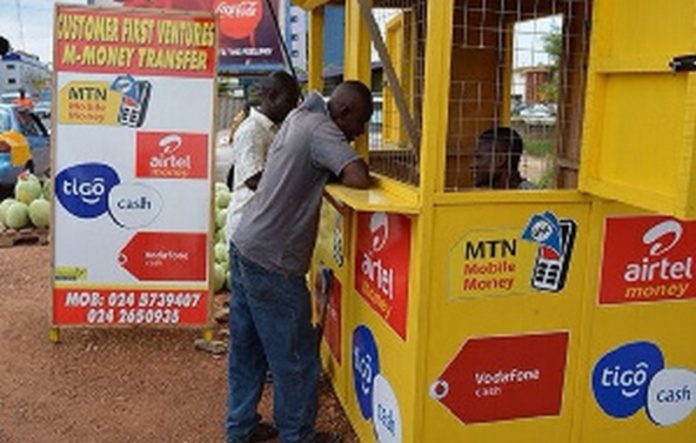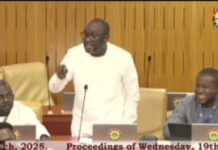
The speculations are over, the dust has settled. Let the reactions, analysis and debate begin.
Before then, a recap of the key issues will definitely be in order.
Thus, here are eight things we learnt from the 2022 Budget Statement and Economic Policy of the Republic of Ghana presented by the Minister of Finance to the 8th Parliament.
It is dubbed, ‘Agyenkwa’ (Saviour) budget.
Government to scrap road tolls
“Government has abolished all tolls on public roads and bridges. This takes effect immediately the Budget is approved,” is how the Minister of Finance, Ken Ofori-Atta announced what has been hailed by all motorists and passengers alike.
“Over the years, the tolling points have become unhealthy market centres, led to heavy traffic on our roads, lengthened travel time from one place to another, and impacted negatively on productivity.
The congestion generated at the tolling points, besides creating these inconveniences, also leads to pollution in and around those vicinities,” Ken Ofori-Atta said.
Many find the reason for the abolition, not only plausible but timely.
Just in case you are wondering how road projects will be funded, the Finance Minister has it covered, “a portion of the proceeds from the E-Levy will be used to support entrepreneurship, youth employment, cyber security, digital and road infrastructure among others.”
1.75% levy on electronic transactions
In accounting, developing a budget means revenue shortfalls must be catered for by introducing alternate measures to fill the void.
Thus, looking round, Mr Ofori-Atta and his men realized that electronic transactions provide the panacea to raising more revenue.
“It is becoming clear there exists an enormous potential to increase tax revenues by bringing into the tax bracket, transactions that could be best defined as being undertaken in the informal economy.
As such government is charging an applicable rate of 1.75% on all electronic transactions covering mobile money payments, bank transfers, merchant payments, and inward remittances, which shall be borne by the sender except inward remittances, which will be borne by the recipient.
To safeguard efforts being made to enhance financial inclusion and protect the vulnerable, all transactions that add up to GH¢100 or less per day, which is approximately ¢3000 per month, will be exempt from this levy,” he revealed.
But the Minority has indicated that they will reject the levy.
“We are hearing that they are going to introduce electronic transaction levy which is going to affect mobile money transaction and bank transfers as well as remittances…We think this is not acceptable and we will advise ourselves when the time comes,” MP for Ajumako-Enyan Esiam, Cassiel Ato Forson promised.
If the Minority succeeds, hurray. Otherwise the choice is yours, cash transaction or electronic transaction?
No more wasteful tax exemptions
Currently, Ghana loses about five per cent of its Gross Domestic Product (GDP) annually due to excesses in taxes of companies operating in the free zone. Government has therefore decided to streamline the country’s tax regime to prevent large companies from abusing tax exemptions.
“We are in challenging times, which require radical measures, so let us embrace these new policies to enable Government to address the fundamental issues affecting the economy, to ensure that, our nation continues to maintain its position,” Mr Ofori-Atta justified.
5 interchanges to be constructed in Greater Kumasi Metropolitan area
Apparently, the revenue accrued from stopping the abuse of tax exemption would be used for productive purposes.
Here is an example, “five interchanges will be constructed in the Greater Kumasi Metropolitan Area,” the Finance Minister disclosed.
Some of the areas where the interchanges will be built are; Suame, Santasi and Airport Roundabout.
Other road projects in the pipeline include; “Kumasi South and Western Bypass, Kumasi Outer Ring Road, Mamfe-Koforidua Road, Oyibi-Dodowa-Somanya-Akuse Jn. Road, the Accra Outer Ring Road, Asutuare Junction-Volivo Bridge, Eastern Corridor Road (Gbintiri-Kulungugu), and the Sawla-Wa Road.”
Not a single public sector worker was laid off due to impact of Covid -19
One of the reasons why Mr. Ken Ofori-Atta’s recent assertion that government’s payroll is full was greeted with anger is the fact that gaining employment in the public sector comes with job security.
This point was confirmed by the Finance Minister when he delivered the 2022 budget statement, “not a single public sector worker was laid off due to the impact of the Covid-19 pandemic on our public finances. Government managed to pay them monthly, and we are grateful to the Unions for their cooperation in this regard” he announced happily.
But hundreds, if not thousands of workers in the private sector have lost their jobs. So you see?
Government forecasts 5.8% growth rate, inflation rate of 8% for 2022
After all the debates and analysis are done, one thing is clear- researchers, academics and investors would like to know what Ghana’s economy would look like in 2022 and beyond.
Mr. Ofori-Atta said government anticipates a growth rate of 5.8% and an inflation rate of 8%.
Also, the government is anticipating a fiscal deficit of 7.4% of Gross Domestic Product and a primary surplus of 0.1% of GDP in 2022.
Total Revenue and Grants are projected at ¢89.1 billion (17.9% of GDP) for 2022 and represents a nominal growth of 23% over the projected outturn for 2021. It is expected to increase to ¢100.6 billion (17.9% of GDP) in 2023, ¢112.5 billion (17.7% of GDP) in 2024 and expected to reach ¢126.3 billion (17.7% of GDP) by 2025.
Total Expenditure (including payments for the clearance of arrears) is projected at ¢128.3 billion (25.8% of GDP) in 2022, ¢135.6 billion (24.1% of GDP) in 2023, and GH¢157.1 billion (22.1% of GDP) in 2025.
‘We are eagles, let us fly’
To the many complaining about hardship in the country, Mr Ofori-Atta, said, “we are eagles; we must eschew the language of poverty of aspiration and reject the 10 spies who want us to go back to Egypt. We are God’s people meant for greatness. Let us fly.
While we have not eliminated suffering, we have done more in terms of social interventions than any other government since 1992 and certainly more in this regard than the NDC governments.
We will therefore continue to work towards mitigating the burdens imposed by the global impact of Covid-19 on Ghanaians as we also commit to tackling the social ills of expenditure control, corruption, recurring leakages and low productivity,” he assured.
‘Thank you for your resilience’ – Akufo-Addo
In Ghana, no ceremony ends without a vote of thanks. Mr Ofori-Atta presented the budget on behalf of President Akufo-Addo who is far away in France.
The physical distance notwithstanding, the President has us in mind, especially having left us when Covid-19 is still prevalent in the country.
“The President has asked me to deliver a special message to our fellow Ghanaians. He says to thank you, the Ghanaian people for your resilience. To thank you for keeping faith with him and responding to all the measures that were needed to contain the spread of the Corona virus.
We are fighting this and we are fighting to win, together. We have been there with the people, playing the difficult but necessary balancing act of managing an economy put under extreme distress by the pandemic and, at the same time, supporting households and businesses to cope.
Our response to Covid-19 thus far, has earned domestic and worldwide acclaim,” Mr. Ofori-Atta stated.
In conclusion, it is worthy of note that if President Akufo-Addo had delivered this message himself, he would have added, “God bless our homeland Ghana and make our nation great and strong. This too shall pass.”






